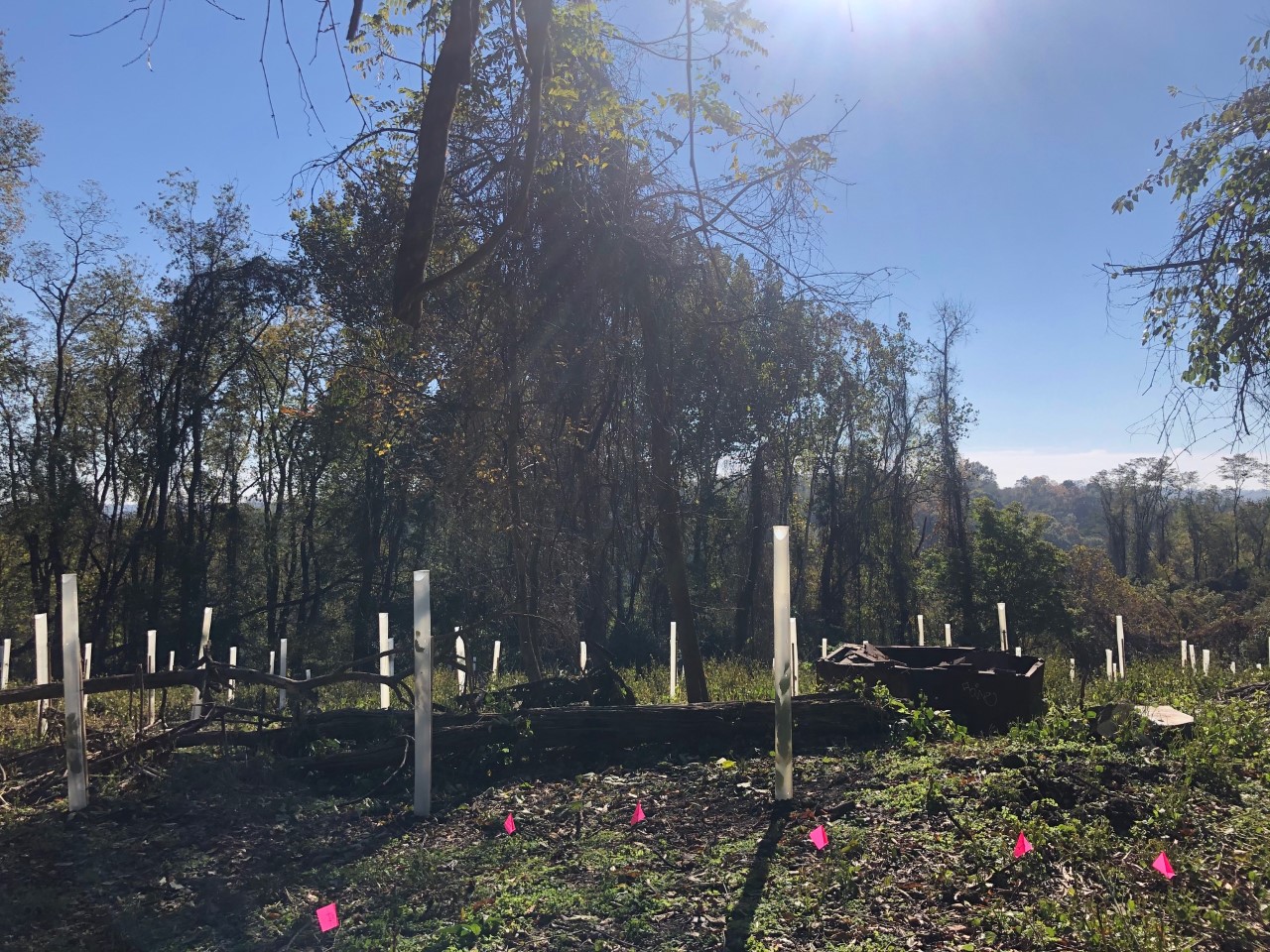Connecting state and local government leaders
COMMENTARY | A recent pilot program in Pittsburgh shows promise as a model for how the city and surrounding region can develop solutions to climate hazards.
Editor’s Note: This is the second in a series of articles from ReImagine Appalachia, a coalition working to transform and strengthen the economy across parts of Kentucky, Ohio, Pennsylvania and West Virginia. At Route Fifty, we’ve reported previously on this project in our news coverage. Here, we’re giving the advocates behind the effort an opportunity to describe their approach, for themselves, in greater detail.
This article in the series focuses on resiliency efforts, which are seen as crucial to helping the region's economy thrive in the years ahead and for keeping residents and property in the Ohio river valley safe as the climate changes and severe weather becomes more common.
You can find the other articles in this series here.
***
Earlier this year, Pittsburgh, Pennsylvania, home to about 304,000 people and situated in a metro area of around 2.3 million residents, experienced a prolonged stretch of rainy weather. The rainfall caused flooding and other problems and served as the latest reminder that the climate in the city and surrounding region is changing, getting warmer and wetter.
Pittsburgh’s city government has been active locally, nationally and internationally in recent years on climate-related policymaking. But the city, like other local governments throughout the Ohio River Valley and across the country, will also need to consider how to prioritize projects that can help them adapt to climate change and the extreme weather events it will bring.
The tragic flooding in eastern Kentucky this summer is just the latest reminder of the severe dangers that weather-related natural disasters can pose in Appalachia. For the region to thrive economically, states and localities will need to take steps to protect residents and property from rising climate hazards in the years ahead.
In Pittsburgh, one opportunity to address these risks lies in the city’s greenways.
These publicly-owned open spaces provide residents places to bike, walk and gather, and have potential environmental benefits as well. But, as Rebecca Kiernan, the city’s principal resilience planner, explains: “The wet weather we had in early May resulted in landslides across Pittsburgh, some originating from existing city-owned greenways properties, impacting residences and private businesses, and disrupting mobility.”
Local projects that invest in the Greenways—like Greenways for Pittsburgh—provide a way for the city to prevent future losses from events like extreme rain, while improving public space.
Some aspects of Pittsburgh’s greenways and efforts to improve them are unique to the city. But a resiliency framework the city and its partners recently developed for the spaces could be applied elsewhere as other communities look to tackle their own local challenges.
In 2018, which also saw the most annual rainfall in Pittsburgh's history, the city spent $12 million on landslide cleanup, and the Division of Sustainability and Resilience in the Department of City Planning conducted an analysis that demonstrated the slides were often coming from city property, particularly greenways, which are in very poor ecological health.
Pittsburgh owns roughly 600 acres of greenways, but does not systematically maintain this land. In the 1980s, after the city lost more than half of its population amid a sharp economic decline as the steel industry collapsed, greenways were developed as a way to consolidate abandoned properties, and upkeep was left to resident stewardship groups.
Over the past 40 years, however, these properties have seen significant ecosystem declines and are increasingly a climate liability. Much of the land is situated along steep hillsides that are highly prone to landslides during wet weather.
There are improved design, planning and management techniques that can reduce slide risks and bring other benefits. But when cities and other local governments want to take on climate resiliency projects along these lines, they can run into difficulties, in part because of limited staff capacity, scarce funding and other resources and a lack of clear standards for making upgrades.
Developing a New Framework
Recently, Resilient Cities Catalyst, entered into a partnership with Gold Standard, an international standards organization, to develop a new international adaptation standard for design, implementation, and results verification of local climate adaptation projects.
The goal of the initiative is to come up with evaluation criteria and indicators that will foster projects with multiple benefits for the communities they serve.
To test out the draft adaptation requirements, RCC partnered with Pittsburgh on a pilot project focused on 183 acres of city greenways. The objective was to develop a systematic approach to climate adaptation that was highly localized and project-specific in an area with degraded forest, abutted by an economically distressed residential neighborhood.

The neighborhood where the project site is located is Hazelwood. A nearby, large-scale mixed use redevelopment project is also affecting the community.
Through the collaboration, RCC provided the city with tools and guidance in areas like stakeholder engagement and project review and analysis of climate hazards and associated risks. Advisory support was also critical to improve project planning, design and implementation.
Lessons Learned
The project led to some takeaways that could be applied in other places.
- Capacity: The city has limited staff capacity, qualifications, budget resources and experience for doing climate-related hazard analysis and risk assessment. “Even metropolises like Pittsburgh are susceptible to resource constraints that keep climate projects in planning stages. Further, without a clear distinction of adaptation terminology, projects will run the risk of being solely focused on mitigation. Pittsburgh’s recent climate events, which are only going to continue to increase in frequency and intensity, further reinforce the value add of scaling this adaptation standard to other communities,” said Jeb Brugmann, founding principal at RCC and the Gold Standard project lead.
- Clarity: It is crucial to define terms related to adaptation clearly at the outset of a project and to explain and contextualize them with a single, graphically illustrated example.
- Consensus: It is also important to identify how to move past a 'no consensus' situation between stakeholders, before the start of stakeholder consultation and engagement in project assessments and planning. Failure to do so can lead to projects getting stuck.
- Science and scenarios: While science-based climate scenarios using federal data have been scaled down to the county level in Pennsylvania, these projections are too general to reflect hazards and trends at the neighborhood and project level. City and community representatives had to craft their own climate hazard scenarios to assess risks and priorities. Local adaptation projects require awareness and respect for forms of knowledge other than that of climate scientists and institutions.
- Local knowledge: RCC staff learned that directly affected resident stakeholders had to be involved in defining climate hazard scenarios for their neighborhood. This information was then reviewed and validated by technical professionals. Community engagement is key to understanding hyper-local conditions, especially when considering how to facilitate a just transition to a future climate scenario. Residents who look at a place every day know best which areas flood or slide in ways maps and models fail to capture.
- Small area, many hazards: In Pittsburgh, the pilot identified a dozen climate hazards to which the Hazelwood neighborhood is exposed. For project planning and design purposes, given limited resources, a shortlist of hazards had to be prioritized.
- Workload: Pulling together risk assessments for multiple hazards and looking at the related vulnerabilities for different stakeholders and for assets such as roads, drainage systems and houses is labor intensive. The local pilot partners and RCC concluded that it is most effective to first have technical professionals prepare preliminary risk assessments, to then be reviewed and validated by local stakeholders.
Pittsburgh's greenways and their vulnerability to heavy rain offer just one example of why it’s important to think beyond annual budgets and look to collaborative solutions and creative financing when adapting public assets to climate change. The city’s pilot program and the lessons learned helped to elevate the importance of funding the greenways program and taking a more targeted approach toward hillside stabilization and stormwater management.
Through the partnership with Resilient Cities Catalyst, city officials also learned that infrastructure projects, new development, city operations and maintaining open space all must be envisioned through a lens of future climate risk scenarios, centering on how the most vulnerable will be impacted in the future by decisions made today. This type of forward thinking will lead to stronger, more collaborative projects and a more adaptable city.
As a result, Pittsburgh’s Department of City Planning is beginning to integrate adaptation planning into government operations, as well as citywide comprehensive planning, to ensure the safety of the city and its residents as the weather becomes more extreme.
Shail Joshi is a project manager for the nonprofit Resilient Cities Catalyst and Garima Prasai is RCC's director of operations and strategy. You can learn more about Resilient Cities Catalyst here: www.rcc.city.

NEXT STORY: Passenger Rail Projects in 8 States to Receive $233M in Federal Grants



